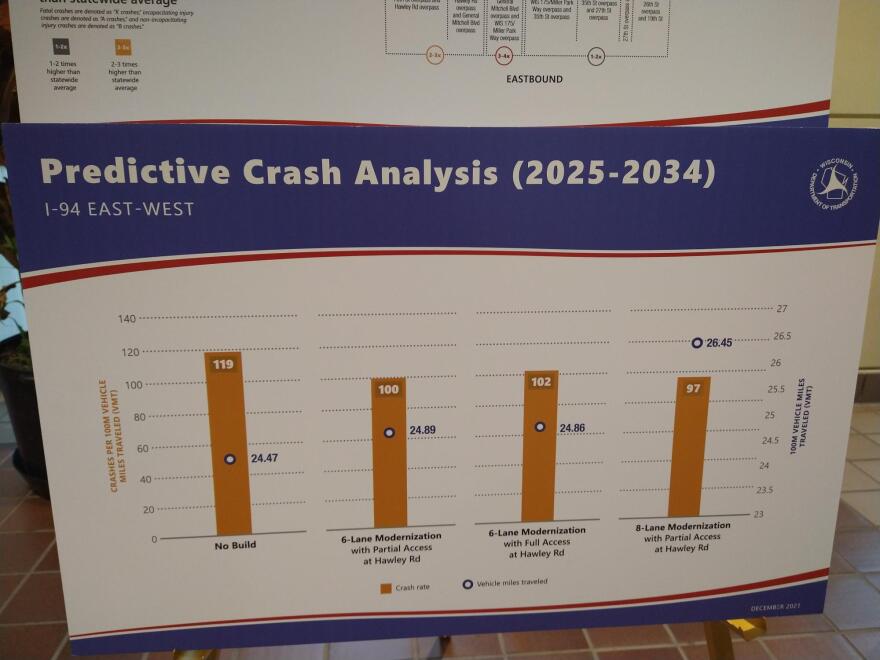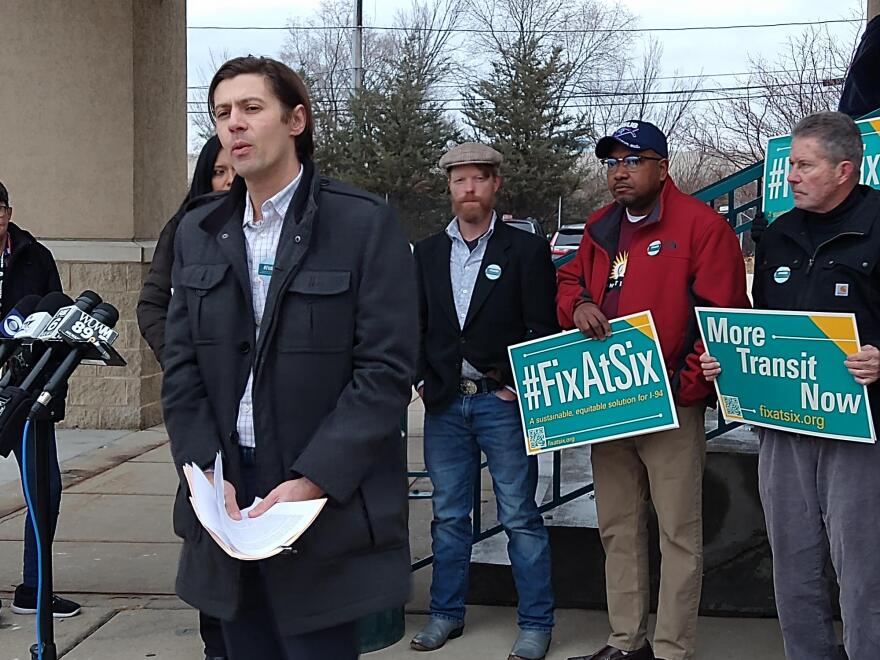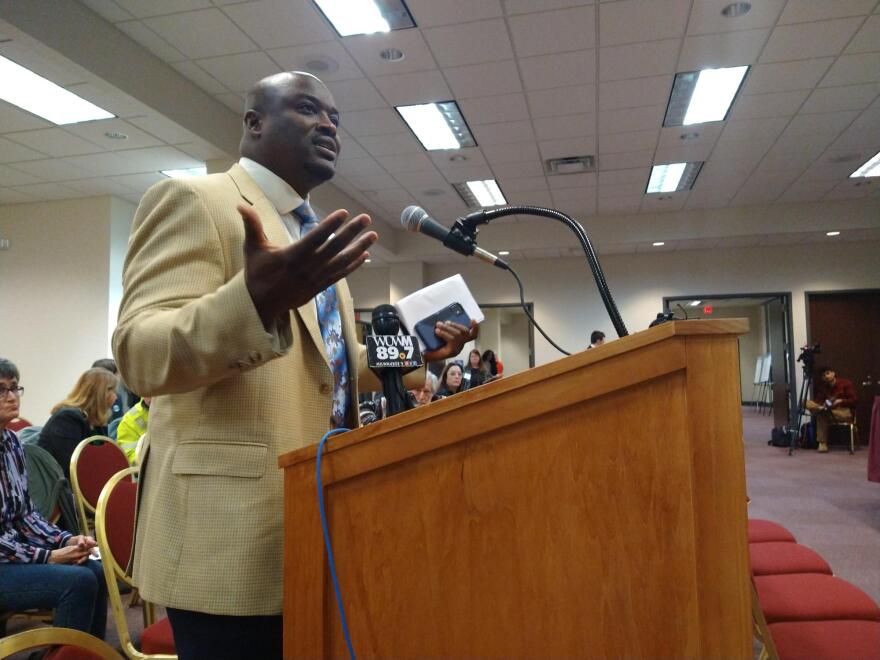The Wisconsin Department of Transportation (WisDOT) has held the first of two public hearings on its plan to widen I-94 to eight lanes, on Milwaukee's west side, between 16th and 70th Streets.
So far, WisDOT is getting plenty of pushback from people who want that three and a half miles of the East-West Freeway just repaired and improved at its current six lanes.

At a press conference Monday before a hearing at State Fair Park, one speaker was Pastor Richard Shaw, president of Milwaukee Inner-city Congregations Allied for Hope( MICAH). He says WisDOT ought to steer some of the $1.2 billion it wants to spend on its eight-lane plan, on funding more mass transit for job seekers who can't find work in Milwaukee.
"We have spent billions of dollars to make it easier to get downtown to spend money. But there are those who need to get out into the suburbs and ex-suburbs, in order to make money and make a living for themselves,'' Shaw told the news media.
At the hearing itself, three-quarters of those spoke joined Shaw in opposing the DOT proposal.

Attorney Tony Wilkin Gibart is with Midwest Environmental Advocates. He said his organization and the ACLU successfully sued WisDOT a decade ago, alleging the agency's original plan for re-doing the Zoo Interchange violated federal anti-discrimination laws.
"We're nearly ten years past that decision. And, what has changed, what has evolved in WisDOT's philosophy? I would suggest not much," Gibart said.
A settlement in the 2012 case led to a few years of funding for more buses to job sites in the suburbs.

But one of the speakers in favor of WisDOT's eight-lane plan argues it would be job creation in Milwaukee. Thomas Moore is Black and works as a Business Agent for the International Union of Operating Engineers Local 139.
"Minorities thrive on these highway jobs because you have to have a certain percentage of minorities on these jobs. I was one of them. Construction has been blessing me for a long time. All I try to do is get more minorities into construction and this job would be a benefit for them," Moore said.
But environmentalists replied that Black and brown communities would suffer the most from greater pollution along the expanded freeway.
Also testifying in favor of eight lanes for the East-West Freeway was the Waukesha County Business Alliance. The Transportation Department will hold another hearing Wednesday afternoon at Marquette University High School.
Freeway re-construction would not start until at least 2025.





